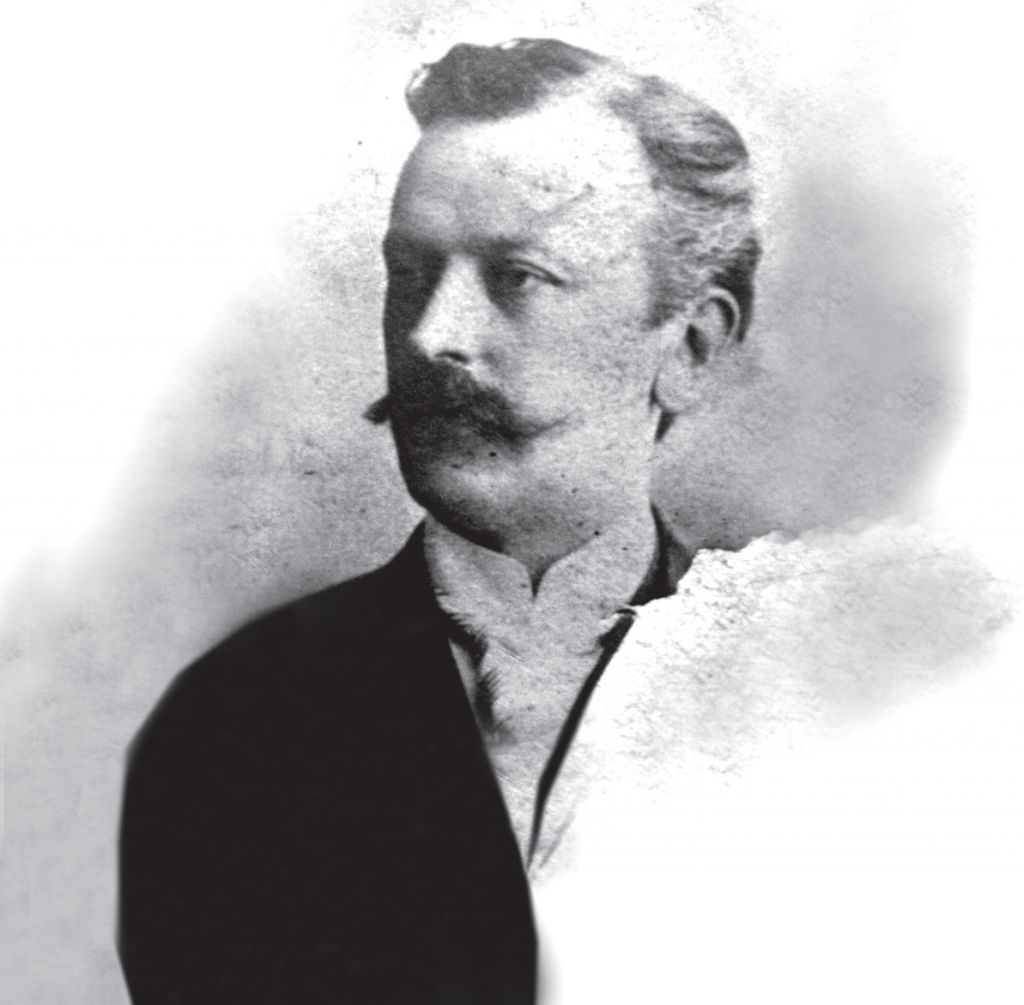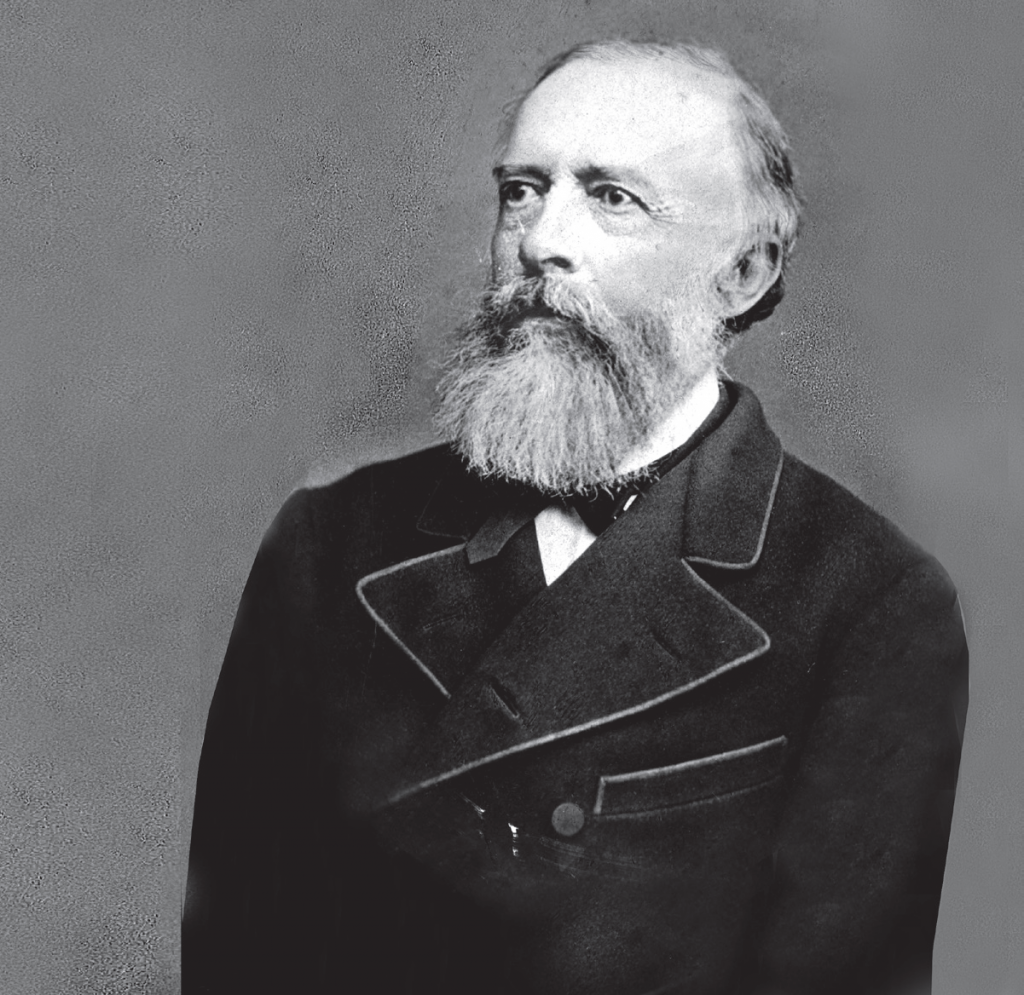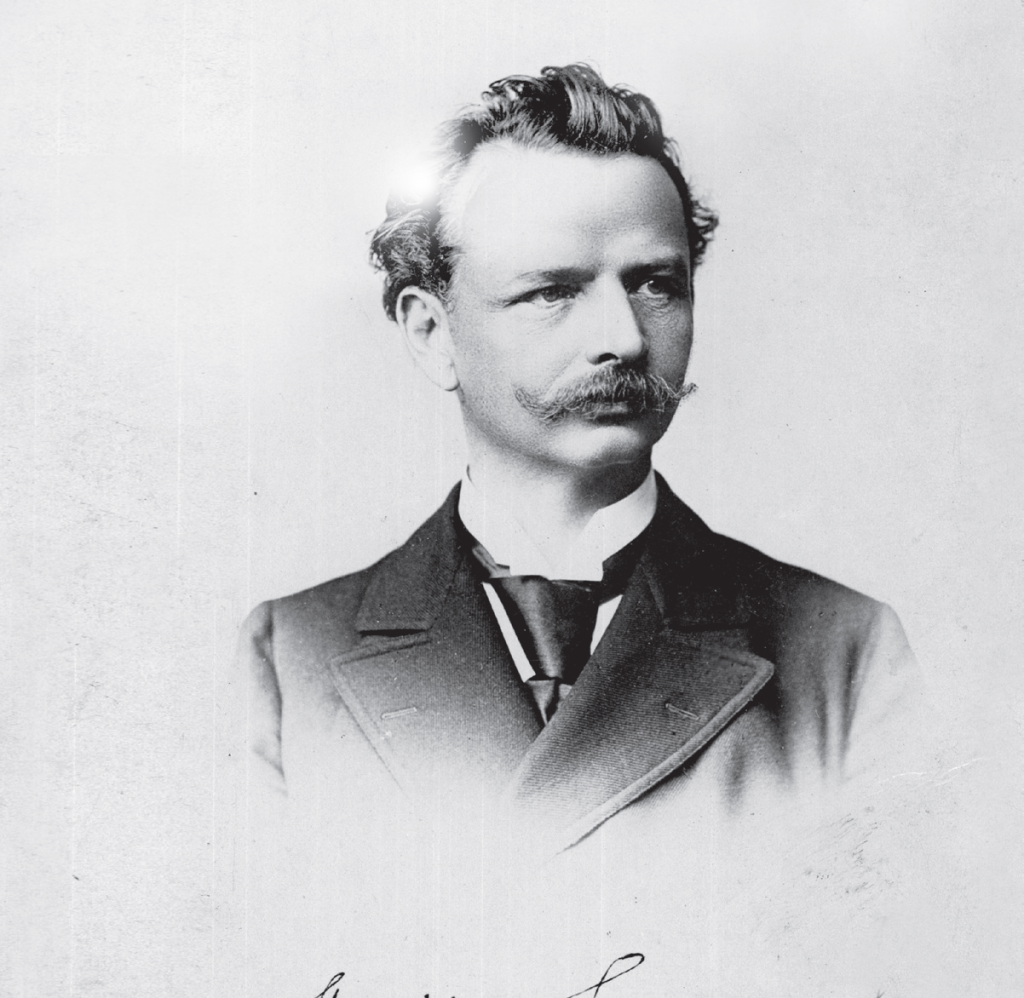Count Adam Skrzyński was born in Libusza, where oil was extracted from 1856 and where the pioneers of petroleum distillation began their bold work. He died in Marienbad. He opened an oil refinery in his home town. He produced pharmaceutical petrol and sold it to England, Belgium, Germany, Sweden, and France.He displayed his products at the industrial fairs organised in Galicia, including the 1882 fair in Przemyśl. In 1874, he built a railway line to connect the refinery with the main line running through the nearby village of Zagórzany. He imported experienced miners from Canada (including William Henry McGarvey), who popularised the Canadian (stem) drilling method. Not only did Skrzyński take care of his business but he was also an active member of the National Oil Association, which handled the mutual business of all oilmen.
As the son of a wealthy landowner, when he came of age, he received the villages of Polanka and Świerzowa. In 1853, the herd of sheep – a source of considerable income for the Polanka farm – was being decimated by an epidemic. The witch doctor brought in from Bóbrka recommended that the sheep be covered with the black goo, which was plentiful in the local waters. The treatment was unexpectedly successful and Trzecieski turned his attention towards oil. He collected it not only from the waters, but also from excavations. The oil extraction profits made Tytus Trzecieski even wealthier and let him expand as a philanthropist.
Stanisław Szczepanowski was born in Kościan, Wielkopolska, and died in Nauheim. He studied at the Vienna Institute of Technology, the École Centrale des Arts et Manufactures in Paris and studied chemical technology and economics in London. In 1877, he received British Citizenship and was invited on a business trip to India with the Prince of Wales, the heir to the throne and future British King Edward VII. Szczepanowski refused. He chose Galicia instead, where he arrived in 1879 to explore oil and with a social and economic mission. In 1879 he went to Galicia.He founded an oil mine in Słoboda Rungurska, which produced 60 percent of Galician oil. While he grew his business, Szczepanowski also developed social and political activity in Galicia. He built houses for workers, opened cooperative stores and community houses, organised vocational training, and promoted the concept of cooperativeness as the publisher of the Self-Help weekly and president of the Union of Gainful and Economic Associations.




